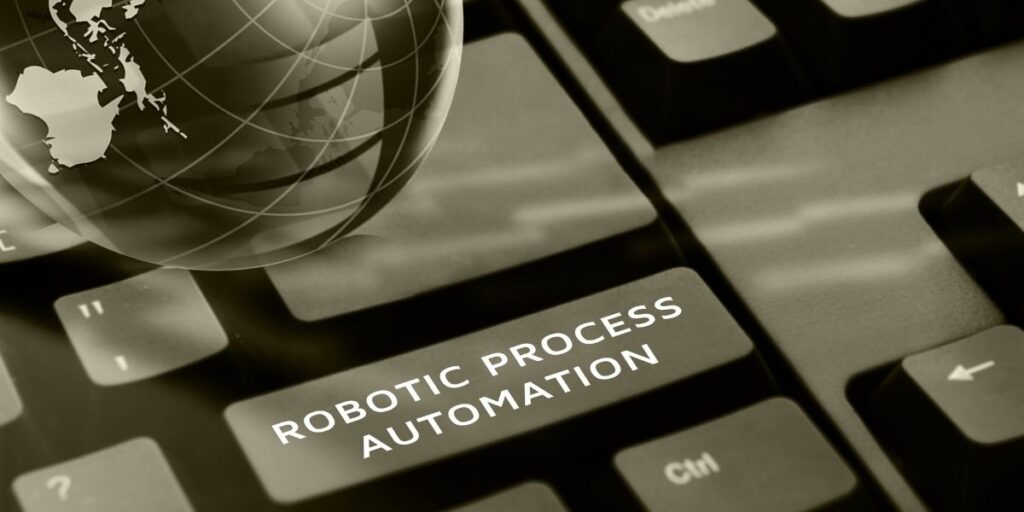RPA uses cases in Finance
Data processing that is manual, especially one that involves numbers, is subject to more chance of human errors. This process isn’t just lengthy, but it is expensive too. The best solution to the issue is RPA robot process automation in finance. Financial institutions have utilized RPA to automate accounting and finance processes for a while in the past. Technology is rapidly evolving and is able to handle information more effectively than humans while reducing huge expenses.
The efficiency in the use of RPA for finance could be measured through the data that shows around 90% of finance managers have initiated or have plans to introduce automated robotic processes into the business process, according to Gartner.
Hyper automation is not the right term used to define RPA in accounting and finance since it can do as much as 30x the work of humans. The technology has grown from simple tasks to processing fully automated reports, data analysis and forecasting, while also interacting with other technology.
In addition to reducing costs for personnel, when handling massive, repetitive tasks related to data they could be applied in a more efficient manner and with a focus on outputs that are more valuable.
RPA Use Cases within Finance
Let’s explore some RPA applications in finance that are sure to merit the money you make.
PO Processing
Fintech firms are typically highly involved in cash inflows and outflows. The repetitive job of creating purchase orders for various clients and then forwarding them to get the approval isn’t just tedious, but it is also prone to error if performed by hand.
The process of processing the same by RPA coupled with AI will not just eliminate the possibility of errors , but will intelligently collect the data and create P’s. Once the automation system has been in place an automatic approval matrix could be developed and sent to approvals with no human intervention. Quick, simple, and efficient and cost-effective are some of the primary advantages from RPA in finance to facilitate PO processing.
Invoice Processing
Processing invoices is also a tedious and repetitive job, particularly if invoices are created or received in a variety of formats.
As a company that is centered around customers Financial institutions are challenged to issue invoices that are in the formats required by clients in a timely manner. Additionally your approval matrix as well as procedure could result in many rework tasks to correct the format and data. Automation could take over the repetitive and tedious task of making sure that the invoices are correct and sending bills to an aligned and approving authority within a short period of time.
The overall accounts payables as well as accounts receivables are able to be totally automated using the use of an RPA in the finance sector. The maker and checker procedure is almost gone since the machine will do the job of comparing the invoices with relevant POs.
Reconciliation of accounts
It is a crucial business decision that can require a considerable amount of working hours for the accountant or the team of accountants to make sure that the balance comparisons are correct. Referrals back and forth as well as logins to different systems require the attention of a hawk in order to ensure there were no errors and that the numbers are accurately compared.
To better understand An organization with various roles and sub-companies has different processes and structures when it comes to managing its accounts. The integration of all these accounts into a single format of processing is not possible depending on the business needs and customer requirements. However, the central team faces challenges in reconciling the accounts of all the departments/sub-companies. This process is lengthy as well as error-prone and repetitive. Implementing RPA will help those in the centre.
This is the most important advantage that comes from RPA to help with accounting. RPA bots help to make the process easy and uniform by analysing and reconciling the information at every stage and process without the need for human involvement in integrating the essential components in these jobs. Human intervention is required only when the data shows errors.
Travel and expenses
The process of submitting travel requests, checking for the appropriate expense class, obtaining approval, necessary supporting documents and more. consumes a lot of time for the accounting team, and can even delay the processing of these requests.
Making sure that the expense reports are in line with the guidelines of the company and preparing expense reports becomes much easier after the introduction of RPA in the corporate finance. Reimbursement management can be managed in a timely manner through the automation of the process. Policy violations and data discrepancies can be intimated to the concerned individuals/departments with the help of automated alerts.
Tax Calculations
Data collection to calculate taxes, establishing tax basis, making reports, etc., when done in a way that is automated with the aid of RPA bots , reduces repetitive task mistakes and errors that can be encountered while doing the same manually. Data and figures have to be precise to decimal place to avoid mistakes in reconciliation process and processing of data.
While the majority of businesses manage their processes through the tax software they use, there’s still plenty of manual work to be done. A majority of the manual work can be accomplished by using RPA bots that can cut down on the time and cost while also providing greater accuracy and compliance with tax compliance guidelines.
Budget Planning and Forecasting
Information gathered with the help by RPA bots from different systems and reports with precision will assist in the creation of variance reports, which provide different perspectives to analyze and view information. Based on historical data as well as actual information, comparison and trends can be based on. These are proven effective methods to forecast and organize your business.
Financial Reporting
The ability to keep track of your business’s transactions, profits and loss every day will help you plan ahead and helps you identify issues in the earliest possible time. Being active in managing and addressing the issues will help prevent loss. Changes can be implemented to modify and improve the current methods and procedures of the business.
Financial institutions and banks are required to create large reports that show their performance, performance statistics and trends. These reports require massive amounts of data. Data extracted manually can be inefficient and inaccurate. But, the use of robotic process automation in accounting and finance facilitates the collection of data from multiple sources and in various formats. The collection, reporting, and analyzing the information can help improve forecasting and making plans.
Payroll Processing
Payroll processing is among the most crucial steps for any company. A timely and precise process results in a more satisfied workforce, which is in turn, contributes to the creation of a loyal client base and a flourishing business.
Financial institutions have presence in multiple places all over the world, recording the efficiency, attendance and tax system according to the area becomes cumbersome. The process of collecting such data and performing calculations can be prone to errors that can lead to unsatisfied employees. RPA can give you the fresh air, by automating the entire process. Correct and timely calculations lead happy employees.
Doing the laborious tasks that involve timesheet verifications, deductions calculation, tax calculations, overtime payouts etc. can be accomplished by RPA robots that are error-free and no delays.




